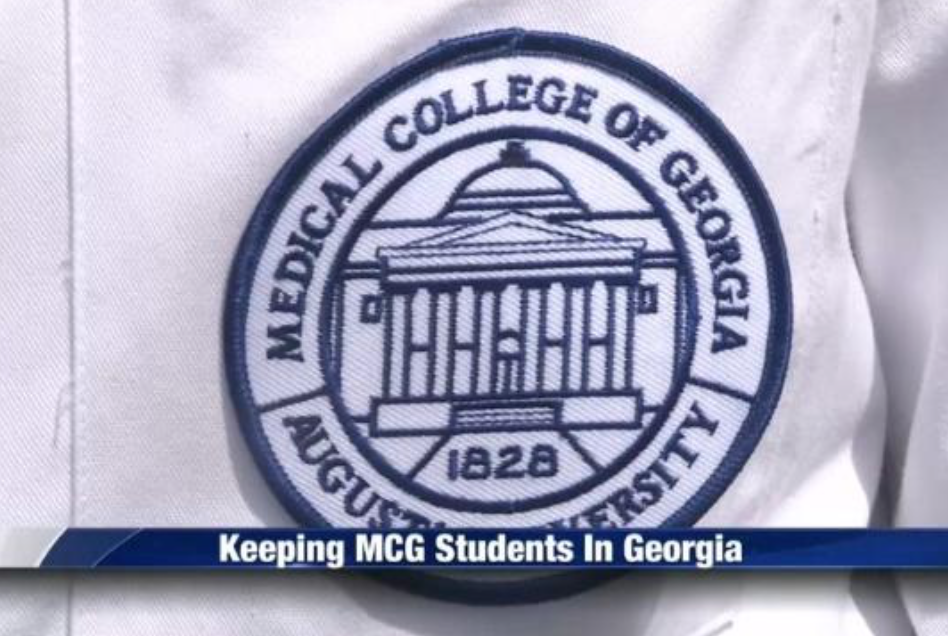MCG: SHORTENING MEDICAL SCHOOL?

 BY GRACE HUNNINGS – Founded in 1828, The Medical College of Georgia (MCG) stands today as the forerunner medical school of Georgia’s university system. As one of the top 10 largest medical schools in the United States, it functions as a conglomeration of four colleges, with nearly 9,000 students and 125 educational programs in total. MCG’s current role is to optimize healthcare in Georgia and beyond by utilizing education, discovery, and clinical service. This medical school offers clinical training at 135 sites across Georgia, where work done at these sites provides a full spectrum of medicine while focusing primarily on locations such as tertiary hospitals to small town practices. MCG’s main campus is in Augusta, although they have other regional campuses in Albany, Savannah, Rome, and Brunswick, along with a four-year campus in partnership with the University of Georgia. MCG’s research focuses on illnesses that affect most Georgians and target the diverse needs of the state and the nation, providing excellent and complex care for all patients.
BY GRACE HUNNINGS – Founded in 1828, The Medical College of Georgia (MCG) stands today as the forerunner medical school of Georgia’s university system. As one of the top 10 largest medical schools in the United States, it functions as a conglomeration of four colleges, with nearly 9,000 students and 125 educational programs in total. MCG’s current role is to optimize healthcare in Georgia and beyond by utilizing education, discovery, and clinical service. This medical school offers clinical training at 135 sites across Georgia, where work done at these sites provides a full spectrum of medicine while focusing primarily on locations such as tertiary hospitals to small town practices. MCG’s main campus is in Augusta, although they have other regional campuses in Albany, Savannah, Rome, and Brunswick, along with a four-year campus in partnership with the University of Georgia. MCG’s research focuses on illnesses that affect most Georgians and target the diverse needs of the state and the nation, providing excellent and complex care for all patients.
MCG has recently announced its intentions to extend admission to 50 students, while also shortening medical school from four years to three and offering loan remission to those who serve at least six years in rural areas. Students who complete the proposed three-year program would then progress to a three-year primary care residency in the state. David C. Hess, MD, the dean of MCG, reacted to this announcement as “the biggest thing we’ve done since 1828”.
The physician shortage is in primary care has greatly increased, where Georgia ranks near the bottom in physicians per capita. According to Hess, if MCG becomes more innovative and allots more spots for student admission, they will continue to thrive and help reduce the growing medical school debt. A 2017 survey found that over a third of students owe $200,000 or more by graduation. By reducing the program from four to three years, students will no longer have to pay tuition for a fourth year mainly used for interviewing with different programs. Students will then have a chance to handle the fourth year differently by utilizing skills beyond the clinic, from research to service in the community or worldwide, to expanding their core skills. This program could take advantage of the 500 to 600 newly created residency positions across the state, while increasing the number of students who go to medical school in Georgia and stay to do their residency. Overall, this program will be an aggressive recruiting tool for students in general and for students already from rural areas. Although this may seem expensive, costing $5 million per year, the benefits of an increased number of physicians would bring huge returns for the state.
By expanding admissions, there would be a total of 300 accepted students, where MCG students will still be selected with the same criteria of academic metrics, health care experience, intellectual curiosity, leadership, and service to others. The 2017 entering class accepted only 230 students with an average science GPA of 3.7 and an average MCAT of 510. Although changes are underway at MCG, the medical school has a long tradition of training students to become excellent physicians. MCG students regularly perform well, where first-time taker rates and mean scores for the United States Medical Licensing Examination will remain significantly above the national average.
